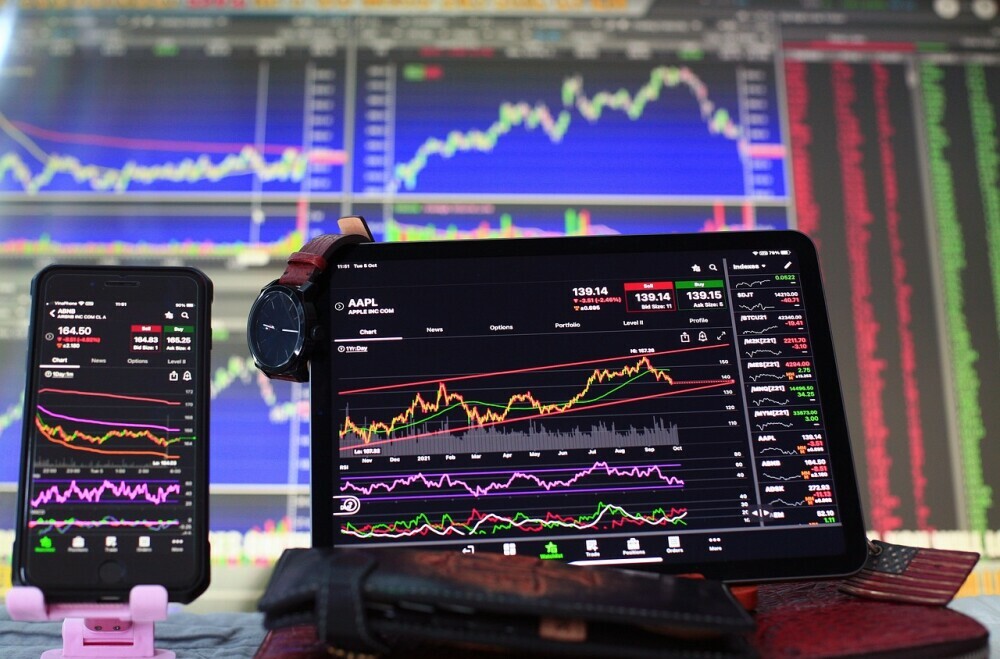At Wealthy Devils, we constantly explore the cutting-edge technologies shaping the future of trading. One of the most transformative innovations in recent years has been Artificial Intelligence (AI). As financial markets grow increasingly complex and volatile, AI is emerging as a powerful tool that can revolutionize the way traders analyze data, predict market trends, and execute strategies.
AI in Trading: A Game-Changer
AI has the potential to fundamentally change the landscape of trading by offering unprecedented levels of accuracy and efficiency. Unlike traditional methods that rely heavily on human intuition and basic technical indicators, AI uses advanced algorithms to process vast amounts of data in real-time. This allows for more precise predictions and better-informed trading decisions.
Large financial institutions like Goldman Sachs, Morgan Stanley, and Bridgewater Associates have already integrated AI into their trading operations, and the results are nothing short of remarkable. AI can identify patterns in historical data, forecast future market movements, and even adapt to changes in the market environment—all with a level of speed and accuracy that is difficult for human traders to achieve.
The Mechanics of AI Trading Systems
AI trading systems work by analyzing both historical and real-time market data. Through machine learning, these systems “learn” from past market behavior, identifying trends and anomalies that can inform trading decisions. Over time, as the system processes more data, it becomes increasingly adept at predicting market movements.
One of the key strengths of AI is its ability to handle the vast amount of information that flows through financial markets daily. From stock prices and trading volumes to news events and social media sentiment, AI can sift through all of this data to find the signals that matter. This capability allows traders to act on information more quickly and effectively than ever before.
Challenges and Considerations in AI Trading
Despite its advantages, AI in trading is not without challenges. The effectiveness of AI systems largely depends on the quality of the data they are trained on. Financial markets are highly dynamic and unpredictable, which means that AI models can sometimes struggle to adapt to sudden changes or unexpected events, often referred to as “black swan” events.
Additionally, AI models can suffer from overfitting, where they become too finely tuned to historical data and fail to generalize well to new market conditions. This is a common problem in high-frequency trading, where decisions must be made in fractions of a second, leaving little room for error.
Another challenge is the interpretation of market sentiment. While AI excels at analyzing quantitative data, it can struggle to understand the qualitative aspects of market sentiment—the subtle shifts in investor confidence that can drive price movements. Human intuition and experience still play a crucial role in interpreting these signals, though AI is steadily improving in this area.
Why AI Thrives in Intraday Trading
AI’s capabilities are particularly well-suited to intraday trading, where the focus is on short-term market movements. Intraday markets, such as foreign exchange, gold, and cryptocurrencies, are global and operate 24/7. This continuous flow of data is ideal for AI systems, which can process information in real-time and make rapid trading decisions.
The two-way trading mechanisms in these markets allow AI to operate with greater flexibility, capitalizing on short-term price fluctuations. For example, in the foreign exchange market, AI can quickly respond to economic data releases or geopolitical events, buying or selling currencies based on real-time analysis.
Furthermore, the high liquidity and rapid response times in intraday markets mean that AI can more effectively mitigate risks. Unlike stock markets, where trading hours are limited and significant price gaps can occur, intraday markets allow for continuous adjustments, making it easier for AI to navigate market volatility.
The Ongoing Evolution of AI in Trading
As AI technology continues to evolve, its role in trading will only become more significant. The next generation of AI trading systems, like the Future Wealth AI 4.0+ model, is designed to offer even greater precision and adaptability. These systems are being refined through extensive testing and are poised to provide traders with tools that can better handle the complexities of modern financial markets.
One of the most exciting developments in AI trading is its potential to democratize access to sophisticated trading tools. While AI has traditionally been the domain of large financial institutions, the next wave of AI-driven platforms aims to bring these capabilities to individual investors, leveling the playing field.
Conclusion: Embracing the Future with AI
AI in trading represents a significant leap forward in how we approach the financial markets. By leveraging AI’s ability to analyze vast amounts of data, identify patterns, and adapt to changing conditions, traders can make more informed decisions and navigate market volatility with greater confidence.
At Wealthy Devils, we are committed to staying at the forefront of these innovations, ensuring that our readers are equipped with the latest insights into how AI is transforming the trading landscape. As AI technology continues to advance, it will undoubtedly play a pivotal role in shaping the future of trading.
Here’s a little transparency: Our website contains affiliate links. This means if you click and make a purchase, we may receive a small commission. Don’t worry, there’s no extra cost to you. It’s a simple way you can support our mission to help make people wealthier.

